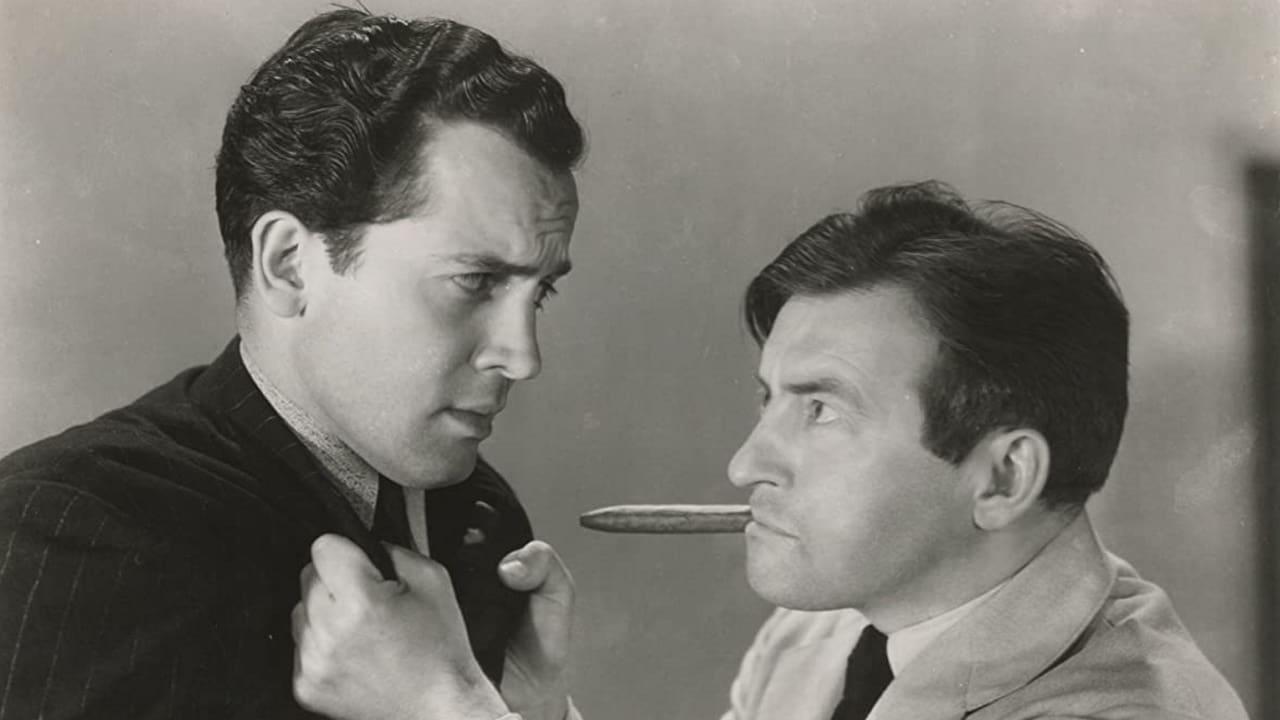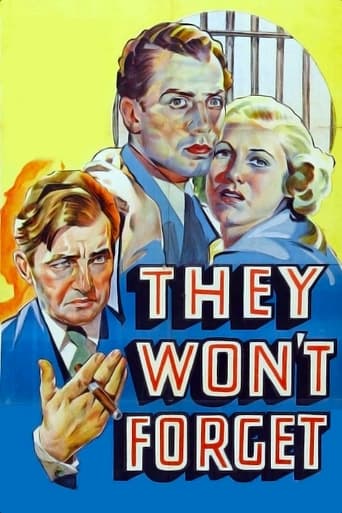

Since this was made in 1937, I got a major surprise when I saw this film. It is a film that is second to few, and shocking in how it was made. Unlike many films with court trials of a murderer, this one will surprise anyone who has not seen it. The disclaimer at the beginning of the film is upfront that this film is fiction. Based on Ward Greenes novel -"Death In The Deep South" there are several things that make this film outstanding.Claude Rains as DA Andy Griffin is outstanding in pursuit of a murderer of a young woman in a town where the previous 2 murders remain unsolved. He realizes this murder as his opportunity to go on to bigger and better things. Before the trial begins he has the town in a ferment. The town founders plead with him to protect their interests in their small town."You should have thought of all this before your papers started splashing front page headlines about this." You started making this trial too big for you. Now it is out of control. You owners of all the media in town should have thought of that before. Then he turns them down saying he can not do anything about it, and admits that he will get a conviction regardless to get justice for Mary Clays Death. It also advances his career. (Recently, the Main Stream Media in the United States got an issue out of control to the point that this movie illustrates, so sadly this film does the same thing years earlier).What is truly different about this movie, is that it is left in the air at the end who really killed Mary Clay. All the evidence presented is circumstantial, but this film leaves it as a parlor game. Sure Griffin gets Professor Robert Hale (Edward Norris) convicted, but the film deliberately does not prove beyond any doubt whether or not he is really the killer. Otto Kruger plays Lawyer Gleason who is defending Hale, but he has little chance against the railroad the media and Andy Griffin have created. "Since when does evidence consist of here-say prove a Defendants guilt? Andy Griffin sums it up as "Guilty! Guilty! Guilty!"A lot of people weigh in on both sides. Mary Clays 3 brothers weigh in heavily and eventually get their justice. So watch this one with a fervor of playing the parlor game, did Professor Hale with no motive actually kill Mary Clay? Was it her supposed boy friend? Was it Redwine (Clinton Rosemond) the janitor guy in the building? Was it the jealous girlfriend who had a crush on the teacher Hale just like Mary? Or was it somebody else? Time to get Ellery Queen only he is not available for this one.
... View More88/100. Wow, what a powerful story and so very far ahead of it's time. A very unusual film to come out of 1937. I could see it being made 10 years later, or in the 1960's perhaps. Impressive direction by Mervyn LeRoy, Claude Rains is just amazing and gives a very strong performance. Excellent style, superb screenplay. The film creates such a vivid and intense atmosphere and it is so thought provoking. Notable also for the early appearances of Lana Turner and Elisha Cook Jr., both of whom are very memorable. The film is very engrossing throughout and quite unforgettable. I very ignored classic that surprisingly doesn't have more of a following.
... View MoreA pretty good story of the arrest, conviction, and lynching of a New York teacher (Edward Norris) in the South, blamed for the murder of a young Mary Clay (the braless Lana Turner) of which he may or may not be guilty. The ambitious DA who nails him is Claude Raines. Defense is provided by Otto Krueger. There are other familiar faces in the film, directed for Warner Brothers by Mervyn LeRoy.I wonder what the folklorist Claude Levi-Strauss would make of this. He believed that people thought in categories, that thought was like language. One word was never like another word. Things were either the same or not the same. Likewise this movie seems to have very little in between one thing and its opposite. Levi-Strauss would probably have applauded.The movie gives us North/South, Memorial Day/Decoration Day, Guilty/Innocent, Life/Death, Reason/Emotion, and a host of other oppositions. (It leaves out Christian/Jewish from the original case of Leo Franks.) The relatives of Mary Clay stop a train carrying the convicted suspect, who is about to be pardoned by the governor, and they hang him off screen. None of the townspeople seem to have any doubt about what's going to happen. And nobody seems to disapprove. They don't even mourn the victim, Mary Clay. Their shock turns immediately to rage without any intervening period of grief. The opposite of rage seems not to be sorrow for the lost Mary, but moral innocence. ("I didn't do it!", all the possible suspects shout.) I suspect, in a way, the movie misses the point. It presents the story as a simple miscarriage of justice, prompted by the hostility of an insular community to an outsider. But, in essence, a lynching doesn't necessarily have to be the carrying out of some vernacular vision of justice. That's not the point. Nor is, "This'll teach 'em a lesson."One important point of a lynching, perhaps the main point, is that it expresses community allegiance. It's a rite of intensification whose real purpose is not that different from the Memorial Day parade with which the film starts. It's like the Fourth of July or Christmas. Photos of lynchings usually show some of the spectators grinning at the camera. All that's missing is the fireworks. The significance is that this is an important community event in which WE were brave enough to take part. Once the smoke of battle clears the prevalent emotion is not the residue of rage but pride.Some of the writing is pretty good. An example. During jury deliberations one man finds a note in his pocket: "Vote Guilty If You Feel Like Living." He's been holding out for the man's innocence. Now he tells the others angrily that he'll stick to his principles and not be swayed by threats. Another jurist, an elderly and avuncular type, explains to him that he's just worried about what people will say. It takes courage to disregard a death threat and vote guilty anyway. Nobody will think the worse of him if he votes along with the others. It's a smooth way of handling a truculent dissident. Vote guilty DESPITE the threat to kill you if you don't. That's the way a real man would do it. What a sales pitch, and delivered with such quiet confidence. Raines' prosecutor is equally adroit. "They say we're prejudiced against Yankees. Let's show them we're NOT prejudiced by hanging this guilty one and leaving the others alone!" The acting is a little overwrought, on everybody's part, the direction is functional and the story, though camouflaged, states itself quickly and then ends without much wasted motion. Even a shot of a train rattling smokily over a bridge is under cranked so it appears in accelerated motion. The court and the press are both phony and should be jailed themselves, but they're not. It's a rather bitter ending when Raines and a reporter are watching the murdered man's wife leave town and the reporter muses, "I wonder if he was really innocent," and Raines dispassionately agrees that it's a good question. The justice system is certainly an efficient way of delivering pain to a lot of people.
... View MoreThis may well be the most depressing movie ever made. Based on a notorious murder case, the audience is spared nothing. I think it took guts for producer Mervyn Leroy to make this film. Many theaters refused to show it. The role of a lifetime for actor Claude Rains, I was impressed by the performance of the actress who plays the wife of the victim of a trial that never should have been. It takes a strong stomach to sit through until the end. The film did win awards, but the Academy of Arts and Sciences was afraid to touch it. In real life the victim of the miscarriage of justice was exonerated many years later, but the political career of the Governor who tried to commute his sentence was ruined.
... View More